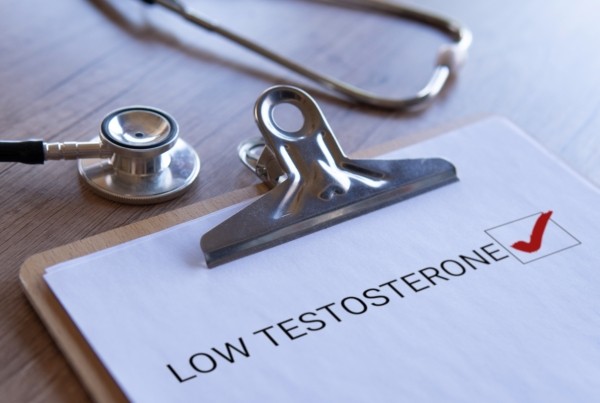It’s that time of year again. You might notice a few more scraggly mustaches than usual (or some surprisingly impressive ones!) around the office and on the street. You’re hearing more proactive conversations in the media and among doctors about the health questions that men should be asking themselves. Hopefully you’re hearing these conversations among family and friends, too. Men’s Health Awareness Month is an incredibly important time for people to learn more about how men can prevent, recognize and treat a range of different health challenges, from prostate cancer through to mental and reproductive health issues.
At a time when male fertility is on the downswing, reproductive health checks are a hugely important piece of the puzzle for men looking to get a full read on how they’re doing. If you’re a guy who’s always dreamed of becoming a dad, whether next year or in ten years, it’s essential not to forget about your own role in the baby-making process. In forty percent of couples who experience infertility, the problem starts with the guy. When you’re such an important part of the equation, men can do themselves and their partners a huge favor by investing in their reproductive health early – it’s the fastest route to the Dad’s Club later on, and often an indicator of your overall health.
But, where should you get started?
- Take the bull by the horns and test your moving sperm count – Your moving sperm count is going to tell you the most information about your reproductive health. It’s not just about the number of sperm cells present, which could include dead cells too; it’s essential to measure how many have got that wiggle that’s going to get them to the woman’s egg for fertilization.
- Get in the habit of checking in on your swimmers –These days, apps and smart devices make it easy to keep tabs on your most important numbers – heart rate, weight, sleep activity, and more. Your moving sperm count is another key metric for measuring your overall health. Test every few months so that you can address any changes proactively. This might sound daunting, but the tools to monitor men’s health are actually now more accessible than ever before. The YO Home Sperm Test is an easy-to-use, smartphone-enabled sperm test that you can use in the comfort of your own home. So make a regular appointment with yourself and your swimmers!
- Involve your partner in the conversation – If you’re in a relationship moving towards kids, now is a great time to get on the same page. You’ve probably already talked about wanting children, and how many, but it’s important to discuss how you’re both feeling physically, too. Opening up the lines of communication now will only make things easier as you work together towards your shared goal of building a family, and make it easier for you to address any issues as a team.
- Get to know a specialist – Results not exactly what you were hoping for? That’s okay; there’s help out there. If you’ve been trying to have a baby for a while (six months if your female partner is over 35, 12 otherwise), fertility expert Dr. Kenan Omurtag recommends that even guys with a “normal” score meet with a specialist to explore further.
Men’s Health Awareness Month is about more than a month of mustaches. By investing in their health at a young age, men can ensure they’re in the best possible position to meet their goals (run that marathon! start a family! meet the grandkids!) and live a long and happy life.
So, dive right in, the water’s fine. Take one more positive step towards securing your future by checking up on your sperm health this Movember – and make a commitment to test every few months going forward. Order a YO Home Sperm Test today to find out how your swimmers are doing today.







